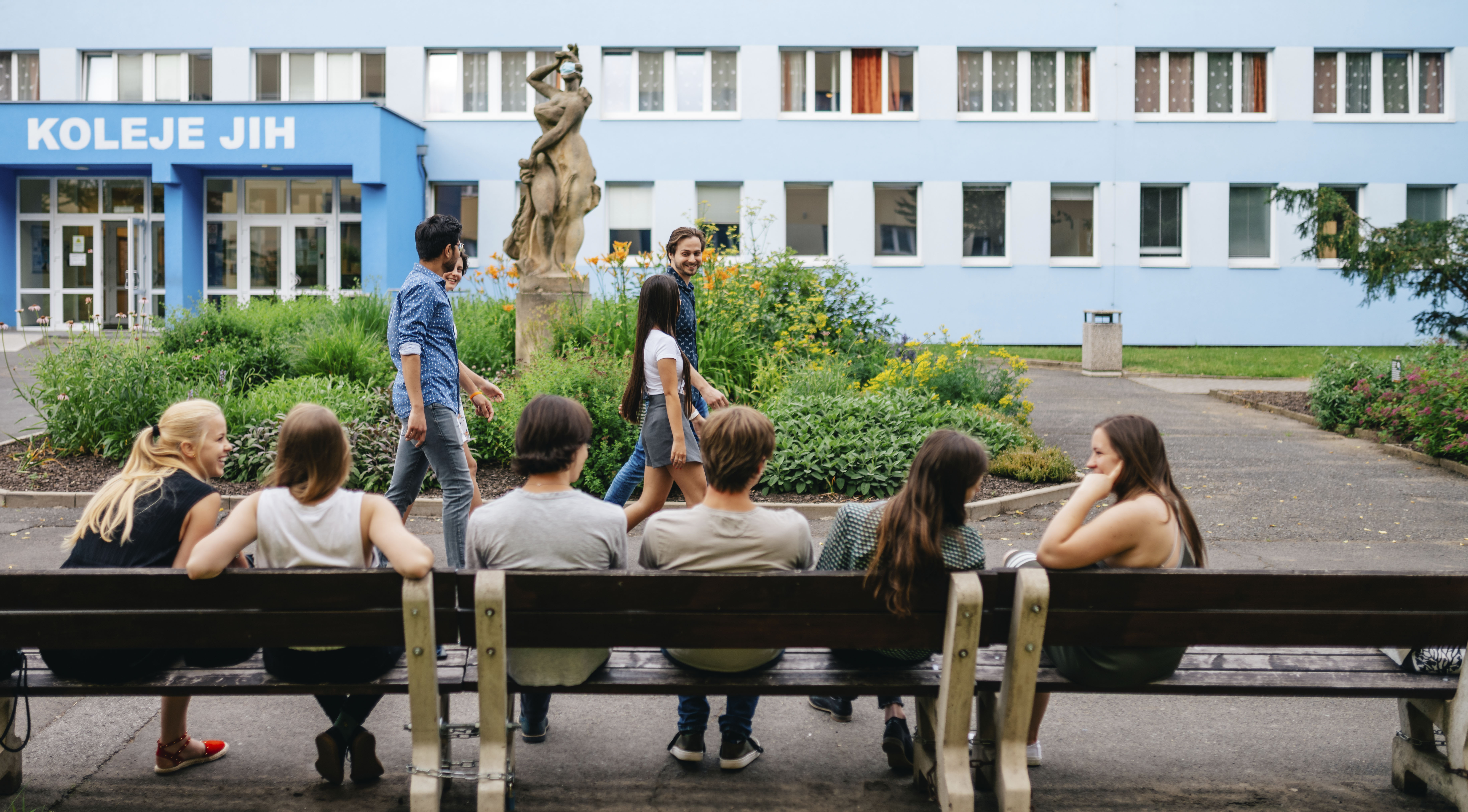10 tips for energy saving not only in the dormitories - small changes with a big impact
Savings in the kitchen (shared kitchen):
- Cooking – long live the lid
- Cook with the lid on the pot. Energy consumption is reduced by almost 50 % when heating with a lid.
- Salt the water (e.g., for pasta) only after you bring it to a boil. Water without salt will start to boil faster.
- If you do not have an induction hob, use a jug kettle to boil water, it's quicker and more efficient.
- Boil only the amount of water you need! It is unnecessary to heat a liter of water when you go to make a regular cup of tea.
- Baking – is a joy
- Bake on "hot air." Hot-air baking reduces energy consumption by approx. 15 % compared to the bottom/top baking program.
- Do not preheat the oven unnecessarily in advance.
- Refrigerator – not a TV set
- Do not leave the fridge door open unnecessarily. Think in advance about what you need in your fridge. Each 1-minute opening means 5 extra minutes of consumption when the fridge works to reduce the rising temperature due to the open door.
- Set the fridge to 7 °C. This is a safe temperature for your food. Each extra degree means approximately 6% extra energy.
- Defrost the fridge/freezer regularly.
- Water – go with the flow
- Do not let the water flow without use.
- Run water in the sink to wash dishes or vegetables; do not wash under running water.
- Wash dishes in the dishwasher if available. Only run the dishwasher when it is full and make sure it is filled correctly. Make use of the different programs (glasses do not need the 75°C program for dirty pots).
Savings in the room (shared room):
- Heating – do not heat the windows
- Set the correct temperature on the heater. Recommended 20 °C, that is level 3 on the thermoregulation head (4 = I can walk in shorts, 2 = approx. 16 °C, so a blanket and to bed)
- Do not manipulate the head back and forth (i.e., when I am hot, I turn it off, and when I am cold, I turn it to max.). It is better to set it and let the thermostat do its job.
- Do not cover the heater. Furniture in front of the heater, clothes on the heater, or a long curtain will block heat circulation.
- Ventilation – make a draft
- Ventilate quickly and intensively. Do not leave the ventilation open; instead, open the window wide once in a while and ventilate quickly. Turn off the heating while ventilating.
- Appliances – on call 24/7
- Turn off appliances. Do not leave appliances (computer, charger, extension cord, TV, etc.) in "Stand-by" mode (quick start light on).
- Charge only for as long as necessary. After charging, unplug the device and remove the charger from the socket (your phone does not need to be in the charger overnight, and your laptop does not need to be plugged in continuously, especially not in sleep mode). Turn on the power saving mode on your computer or laptop (brightness reduction, automatic shutdown, or sleep mode for long periods of inactivity).
- Light – let there be light
- Turn off the lights. Not only in the room but also the toilet, bathroom, or kitchen.
- Replace conventional bulbs with energy-saving ones.
- Make use of daylight; if the sun is shining, open the blinds or curtains.
Savings in the bathroom (shared bathroom):
- Hygiene – time for a song
- Shorter showers with breaks and lower water temperature. Shorten the shower to the necessary time (recommended length of one song). Turn on the shower only to soak and rinse - no need to keep the water running while you're soaping up. Set the water temperature a little lower; not only will you save money, but it is good for your health too.
- Wash your hands with cold (lukewarm) water. Soap also works in cold water.
- Turn off the water. When shaving or brushing your teeth, the water does not need to flow without benefit.
- Reduce blow-drying time. Dry your hair sufficiently beforehand with a towel or let it dry freely in the air.
- Laundry – less is more
- Reduce the washing temperature. If the laundry is not very dirty, just set the program to 30°C.
- Unless you have a "smart" washing machine that can dispense water according to the amount of laundry, turn on the water when the machine is full.
- Skip the dryer. The dryer is the biggest energy consumer in the home, so, if possible, hang your laundry to dry freely.

